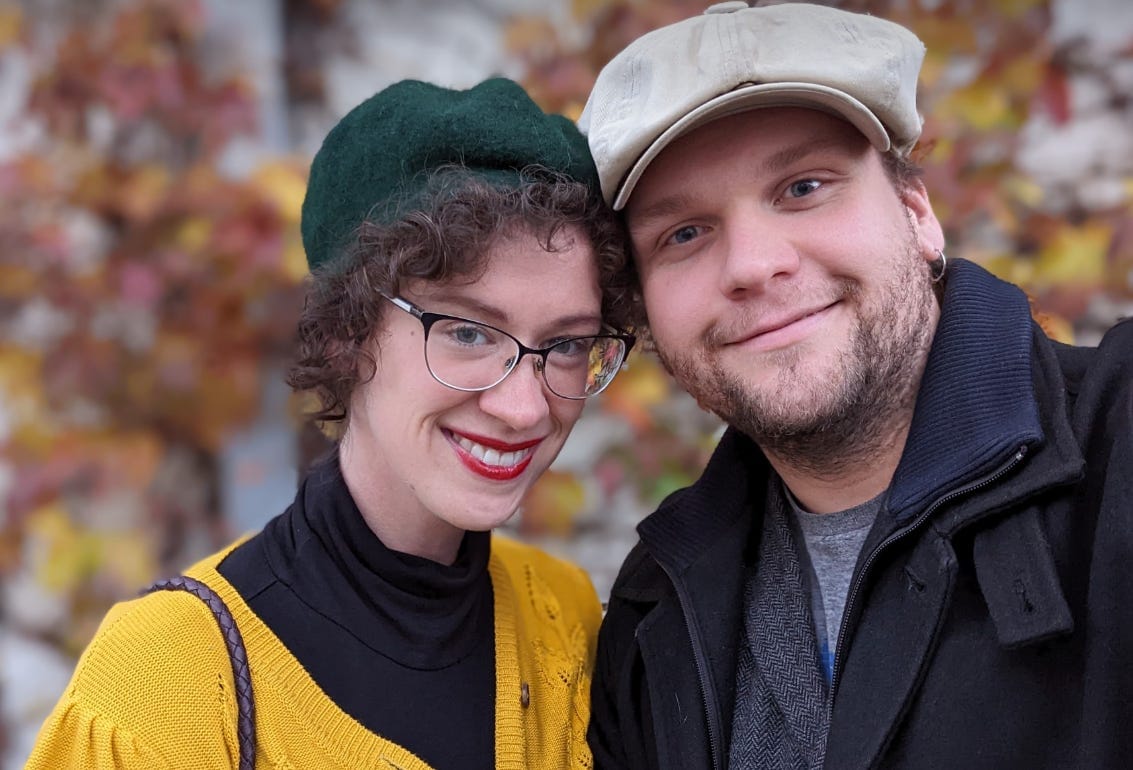The Key to Creativity
Publishing news, National Novel Writing Month, Mastodon, and more!
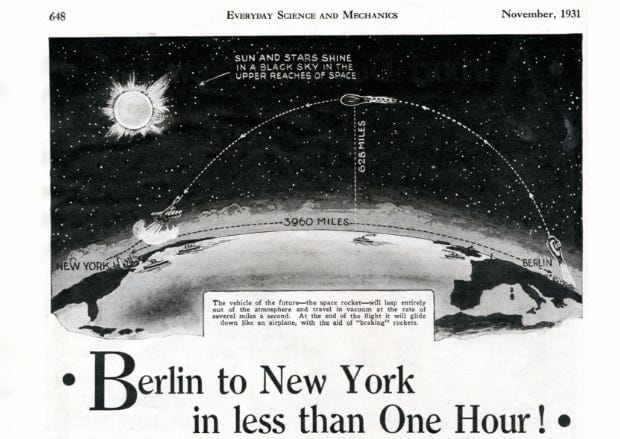
Hello, friends!
What a week! I finally came down with the illness that struck Katie, and boy-howdy, it’s not fun. I’ve kept up with most of my projects during this time, though I had to reschedule some appointments and I miss going outside. Friday was the first day in a week I’d actually taken a walk (other than stumbling between the couch and the bed).
I’ve got lots of writing to share with you this week. A new book review, a film recommendation, and a little piece about the process of writing. And there are the usual paywall-free links to my microfiction and Medium articles. I also have some fun news to share about some of my work that’s getting published!
This week’s reviews
Book review at The Strand: The Great Unmaking by Brian Nelson
This is a military technothriller with crisp language, fast-paced plotting, and some nice little twists and turns. It’s the last book in a trilogy, but you honestly don’t need to read the others to enjoy this one!
Film: Amsterdam (2022)
Warning, there are some very light spoilers in my review. Skip past it if you want to have no idea what the film’s about when you walk in. However, the plot spoiler I offer isn’t one that ruins the film, and I think might even entice you to give it your time if you’re on the fence.
A friend told me about this one, and I’m so glad he did. The TLDR? Watch it today!
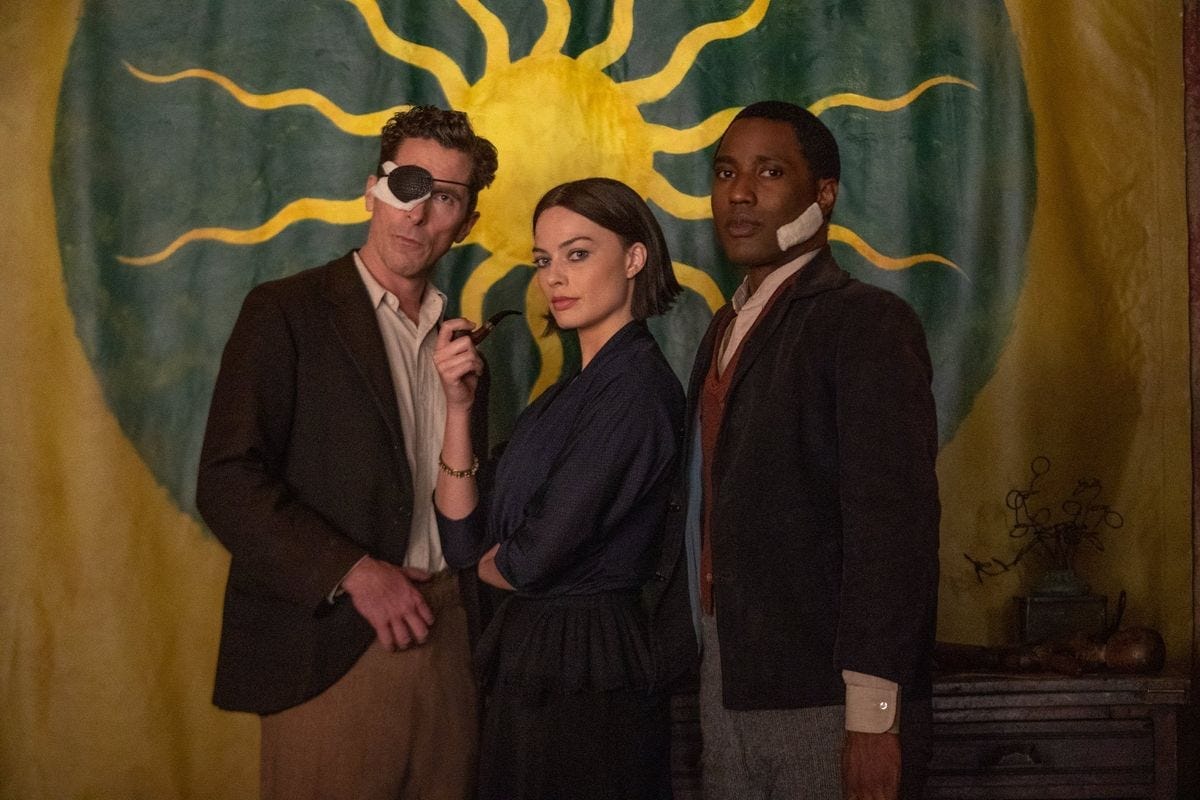
Amsterdam (2022) tells the story of two WWI veterans who, alongside a nurse that they befriended after she saved them from their injuries in the war, uncover a fascist plot to take over the United States government. Oh, and it’s based on actual events.
The film details the close friendship of its three main characters through their first introduction during the events of WWI, and then later in the 1930s as the rise of fascists in Europe portend another, and even bleaker, conflict. Caught up in a conspiracy to kill a retired General and his daughter, our heroes soon find themselves up to their necks in racist fascists, egotistical social elites, and strange bird-obsessed federal agents.
I’ll admit that I was skeptical when I first turned this one on. The film utilizes too-fast jump cuts, run-on sentences to create humorous tension, and continuous juxtaposition of the grotesque and the strange alongside the beautiful. In other words, it’s trying a bit too hard to be Wes Anderson. In that goal, it doesn’t quite succeed. And yet, days later, I’m still thinking about this movie. That is the sign of a piece of art with some real teeth.
For one thing, it really is based on a real fascist plot to overthrow the government of the United States. This reminds me of something that the anarchist scholar Sir Herbert Read wrote in an essay: that fascism in the United Kingdom was never unmasked during the events of WWII. Well, we’ve had a long lineage of fascism in the United States as well, and one has to wonder how deeply it has spread behind the scenes. What did those moguls plotting the downfall of democracy do when their plot was ousted? How did they evolve to better thrive inside the shadows? Honestly, it’s scary as hell, and I love how Amsterdam touches that sense of the horrific and lingers on it.
I would give this one a watch, if I were you. I’m glad that I saw it, and I think it’s earned itself a firm place in my rewatch list down the line.
My Writing
It’s been an interesting week for writing, given how sick I’ve been. I’ve somehow managed to stay pretty true to my novel goals, which is surprising, and bizarre, and wonderful. It’s like… I might actually finish this 3+ year project finally? What?? Crazy talk.
First, let me start off by introducing you to this beautiful 12th century poem.
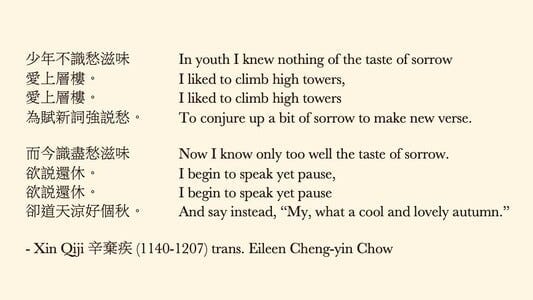
Text within this block will maintain its original spacing when publishedIn youth I knew nothing of the taste of sorrow I liked to climb high towers, I liked to climb high towers To conjure up a bit of sorrow to make new verse. Now I know only too well the taste of sorrow. I begin to speak yet pause, I begin to speak yet pause And say instead, “My, what a cool and lovely autumn.” - Xin Qiji (1140-1207) translated by Eileen Cheng-yin Chow
Today, I’ll talk a bit about process.
I have always been a discovery writer (which is little wonder, since I cut my authorial teeth on a combination of post-by-post roleplaying games and National Novel Writing Month). Discovery writers are also sometimes known as pantsers, a neologism popularized by the NaNoWriMo crowd (it means “One who writes by the seat of their pants”).
Discovery writing is the process of sitting down to write with very little, or no, idea of what you are going to write beforehand. You may have something as concrete as a character, the rough shape of a location, and a little piece of dialogue. Or, you might have literally nothing until your fingers hit the keys.
This is opposed to plotters (people who plot their work out). These are points on a spectrum, mind, not absolute positions, but they can help act as guideposts to aid in one’s own act of creation. By better understanding how you approach a project, you can learn to explore the weaknesses of that approach. Both plotting and pantsing have weaknesses, and, ultimately, any successful writer is going to learn to incorporate a bit of both. If that seems like a bold statement, trust me, it isn’t. I can write more about this topic in the future!
My process is, as I said: discovery writing. The last two years, I’ve been practicing the art of plotting, with mixed successes, because I know that my pure pantsing style is antithetical to my desire to become a professional novelist. For one thing, it’s easy to lose your way.
For example: It was just this year that I finished, for only the 3rd time in my life, a major literary project. Start to finish, I wrote a novella. It had some good bits, some weak bits—but it was a completed firs draft. Before that, I’d only completed one feature-length script and one novel (my second NaNoWriMo novel, and wow, was it a strange Frankensteined mess).
But plotting does not come easy to me, partly because I’m using my discovery writing process to find the plot!
But, this last month, I’ve been blazing through this discovery process, in large part because I’m not allowing myself to get bogged down in the act of fixing things. One of the hardest things for many writers to learn is that what you write, at first, doesn’t need to be polished or good. You don’t need to be happy with what you’ve written… you just need to write! And so, my novel is moving, and I only have 50-60 thousand words left before I can slam my laptop closed and shout “victory!!!” toward the sky. At which point I need to re-open my laptop and begin revising it… because I really want to send it off to agents.
In the meantime, I’m also working on my weekday microfiction, and my nonfiction articles. Once my MLIS starts, I’ll have less time for this, so it’s been important to me that I work hard on it now.
Microfiction
These are 100 word (or fewer) literary shotgun blasts. I don’t edit them much, I just grab hold of some idea and ride it until it feels done. This really is pure discovery writing, and it’s fun!
- The Wheel Turns General Sam Chen-Anhaeuser’s clenched fists were white at the knuckles.
- She Dances While Forever Still There are no more fulfilled wishes in my ruined town
- Don’t You Love Your Dentist? She reaches under the desk, lifts a bottle with something small and dark inside. It moves.
- Inside, Outside The man yells, “Give me a reason not to!” and Miss Simmons starts to cry and says, “I can’t.”
- A Mind of Their Own “We didn’t build a million bloody robots to sit around and take tea! They’re supposed to be stopping bad things from happening.”
Articles
I continued my articles about the federated Mastodon social media network because it’s so exiting to see people finally escape the corporate chokehold. There are downsides to Twitter’s death, but the upsides are far more important.
If you want to join Mastodon and need help, let me know. I’m not an expert, but I’m happy to point you in the right direction (even if that direction is just toward better sources of support).
The first of these guides is now the index for all my Mastodon guides. You can find everything I write about Mastodon linked through there.
A Respectful Guide to Everything You Need to Know About Mastodon Mastodon is better than Twitter, but switching to a new app is hard! My guides make using and understanding it easy as baking a pie.
Authenticate Yourself! No, it’s not hippy lifestyle advice. It’s Two-Factor Authentication (2FA) and new Mastodon users should be using it.
Why Should I Be Kind to Other People? Content Wrapping on Mastodon, and a guide to being a better member of society.
Safety on Mastodon vs. Twitter Mastodon is safer than Twitter, Facebook, or TikTok in so many ways.
I also posted the second half of my “Best Film the Year You Were Born” series.
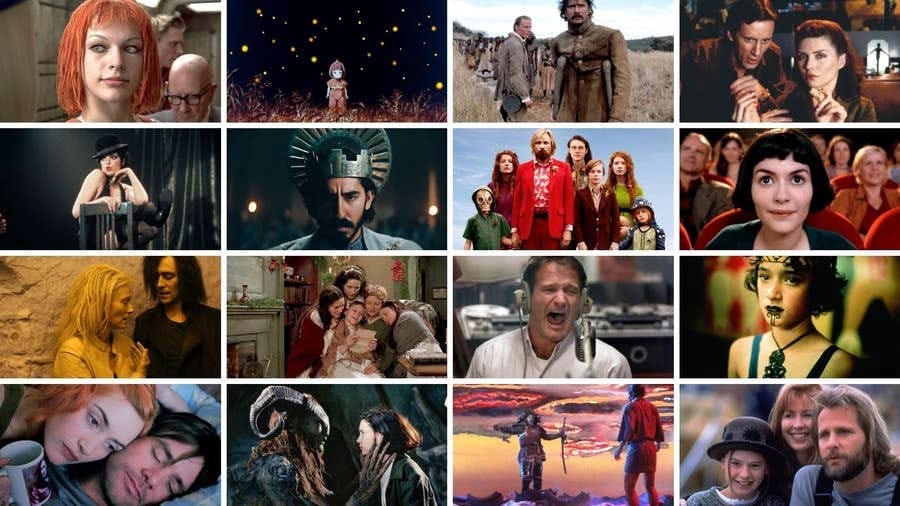
This one’s longer than the first, and I think I captured a nice mix of films everyone knows with films you might never have heard of. It’s been almost a decade since I worked in a video store, and I weirdly still miss the experience. If there was one in town, still, I’d honestly be applying to work there, low pay or not.
- The Best Film the Year You Were Born! (1972–2021) Great films that you may never have seen before, as well as the ones you have.
I also edited an older piece about National Novel Writing Month. It’s quite personal, but it offers a brief window into why this event means so much to me, and why I keep doing it every year.
- How National Novel Writing Month Changed My Life When my father died, writing became the one safe place in a chaotic world.
Publishing news
Two of my microfiction pieces have been picked up by an exceptionally cool literary magazine. Not only am I excited to see them find a home in the literary community (there aren’t a ton of markets for microfiction), I’m also incredibly gratified by the glowing response from the magazine’s editor.
I can’t tell you where these will be quite yet, but I just have to share the editor’s comment with you now because it makes my heart glow.

To begin with, wow, I must say that I am in love with these pieces! The Last Banana is a comedic masterpiece (that's an understatement), while Death Becomes Her completely juxtaposes that and feeds into a dystopian future. I must say, Odin, I'm absolutely in love with your writing style. How do you do it? Your pieces are both quite small (nano-pieces, to put it best?), yet they pack in such powerful diction, motifs, themes, fluid movement and pacing, in such a manner that the reader is almost sucked into each of the individual lines; from the bottom of my heart, you have no clue how much I love both these pieces! (P.S: I'm a huge 80s/90s Star Trek fan too haha)
Technology
Did you know that LinkTree is a horrible privacy rights abuser? Many people use the service to create a simple web page directory that leads to all their work around the web. It’s faster than making your own webpage and has some basic tools for checking on traffic. But it also harvests your data, all your data, and sells it off.
That’s where BioLink comes in! BioLink is a totally free alternative to LinkTree. It’s open-source, has no tracking (beyond actual clicks on your links), and it’s from the Buy-Me-A-Coffee folks, who have long been committed to good privacy/social practices. So, what are you waiting for? Ditch that terrible LinkTree page today and hop on board BioLink!
From the InterWebs
Twitter is still imploding, as hundreds more software engineers quit in the face of Musk being an awful human being. But, this Deep Space Nine meme about it made me laugh out loud. Also, while climate disaster is always on the headlines, it’s nice to see some good news from the natural world.
This comic explores the work of the famous philosopher Karl Popper as he explains the paradox of tolerance. It’s just one page, and it’s absolutely worth reading and sharing broadly.
And, since I’ve gotten in the habit of ending this section with something cute… here’s a new book by Kim-Joy, one of my favorite contestants from The Great British Baking Show.
It’s finally FUR-REAL: I’ve written a brand new CAT THEMED baking book and I’m so excited (and nervous!) to finally be able to announce it and I hope you all love it as much as I do!Cause it’s cats and baking and joy!!And a range of cute recipes for EVERYONE🐈🥰😻🐈⬛🐱(thread…)
— Kim-Joy (@kimjoyskitchen) 2:42 PM ∙ Nov 17, 2022
Well, friends, that’s it for this week. Thank you so much for reading this newsletter! If you enjoy what I do and want to support me, please share this newsletter with your friends and family! You can also leave comments and questions below.
Until next week, dear people. And remember: go easy, and, if you can’t go easy… go as easy as you can.
~Odin Halvorson
